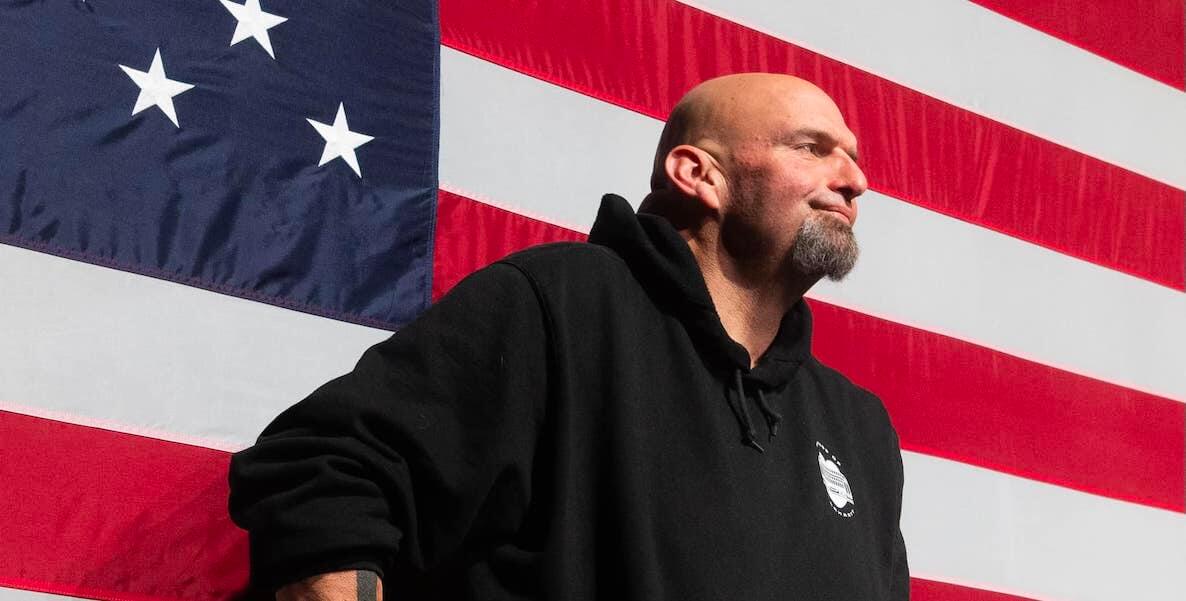Recently, U.S. Senator John Fetterman was hospitalized because he felt lightheaded during a Senate retreat. The next day, Fetterman checked himself into Walter Reed National Military Medical Center for clinical depression. His wife Gisele released a statement saying, in part, that Fetterman has had depression “off and on throughout his life.” Immediately, the vultures descended, calling him a “vegetable.”
Now, Fetterman wasn’t my favored pick for the Democratic primary. But being forthright about his mental health took guts. We should respect that. Men are raised to be unemotional brick walls. But we feel. We’ve, historically, just not been allowed to express those feelings. From childhood, we’re told things like “you’re crying like a baby.” The sentiment is so pervasive that even children repeat it, pressuring other kids to be non-emotional.
It’s unhealthy, and we’ve got to stop it. This anti-emotional culture has resulted in high suicide rates among men. Men, according to the CDC, are 49 percent of the population but makeup 80 percent of suicides. We need to create social environments where it’s permissible to be vulnerable as a man. I didn’t understand how important that was until my girlfriend (thank you, Gabriella) made me.
Guys: It is absolutely necessary to tend to your mental health, which is why it’s so lovely that Gisele — who basically won the campaign for Fetterman — is supporting him. Most guys won’t say it, but one of the reasons men opt to present that hard-shell persona, devoid of emotional expression, is because it’s not just kids who tease each other. Sometimes it’s women who do that too. Ladies: Be kind to men.
We need to dispel men’s gender norms the same way we do women’s gender norms. Men who face their mental health challenges head-on should be embraced. Young men: Look up to them. They are not soft. They are men.
The truth is that men from all walks of life can do great things and still tend to their mental health. Former Congressman Patrick Kennedy is a famous example. One day, thinking he was late for a vote on the House floor, Kennedy, being in a rush, drove into a barricade in front of the U.S. Capitol. The next day, Kennedy admitted to having a problem with addiction and bipolar disorder — and that this was the reason he was in such a manic rush to get to work and crashed.
Despite that admission, Kennedy was reelected to the House. After leaving the House in 2011, he founded The Kennedy Forum, which works to improve the healthcare system “with mental health and addiction advocates, policymakers, and business leaders around key opportunities for progress, including provider accountability, integration and coordination, technology, and brain fitness and health.”
Mental health issues as an election cudgel
Now, there is a case to be made that Fetterman has not been upfront about his struggles. His campaign hid the severity of his stroke over the four days leading up to the Democratic primary last May. On the campaign trail in the fall, he acknowledged shortcomings resulting from his stroke — auditory ailments, in particular — but he didn’t mention anything about being depressed.
And he assured voters, through a story in the New York Times, that he was “living a perfectly normal life.” In fact, Fetterman seems to be experiencing post-stroke depression, a common side effect of the health episode, aggravated by the difficulty of adjusting to his new life in the Senate.
On the other hand, in the heat of political warfare, a candidate’s mental health can be used as a cudgel. When actress Ashley Judd considered running against Senate Republican Leader Mitch McConnell in Kentucky, for example, McConnell and his aides contemplated weaponizing her past mental breakdowns. In a recording obtained by Mother Jones, McConnell and his aides laughed, calling her mental breakdowns in the 90s “a wealth of material.” And Fetterman himself faced mocking from Mehmet Oz’s campaign over the lingering effects of his stroke. In such a climate, can Fetterman be blamed for not disclosing his depression sooner?
There is no way to hide Fetterman’s absence from the Senate while he is in the hospital, but he did not need to open up about his mental health issues. It’s good that he did. Emphasis on mental health is particularly important in this post-Covid age because young people are still struggling. They need to know that they are not weak. And having leaders, like Fetterman, be open about their struggles with mental health will encourage those still dealing with it in secret, especially men.
Fetterman has even inspired other members of Congress to share their mental health triumph stories. Congressman Ritchie Torres came out supporting Fetterman, tweeting, “I admire Senator John Fetterman for openly seeking treatment for depression at Walter Reed. Back in 2010, I was hospitalized for depression. I would not be alive, let alone in Congress, were it not for mental health care. Millions of Americans are rooting for you, Senator.”
Torres’ voicing support is particularly special because he’s a man of color, and it’s even harder for Black men to be open about their mental health struggles. As a Black man, I know it’s something that is still seldom discussed.
And Senator Tina Smith, from Minnesota, struggled with mental health in her 30s. Smith wrote an op-ed supporting Fetterman and tweeted: “In the short time I’ve worked with John Fetterman, I’ve been struck by his resilience and heart. John is doing exactly what he should do, which is seek help. Seeking help when you need it is a sign of strength, not weakness, something that John is demonstrating for all of us.”
Jemille Q. Duncan is a public policy professional, columnist, and Gates Scholar at Swarthmore College. @jq_duncan
![]()
MORE FROM THE PHILADELPHIA CITIZEN ON MENTAL HEALTH



